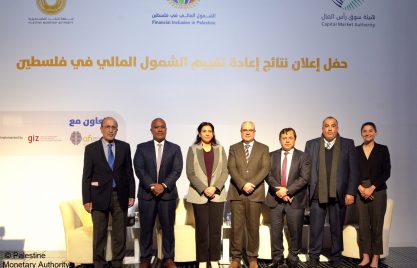Around 25% of an estimated 1.6bn Muslims worldwide live on less than USD 1.25 per day. Survey results suggest that Muslims are less likely to have a formal savings account while they are more inclined to cite religious reasons for this, compared to non-Muslims. However, among the overall barriers to account ownership, Muslims report cost, distance and paper work to a higher extent as well, highlighting the need to look beyond Sharia compliance – toward inclusive Islamic Microfinance.
The ability to reach Muslims with limited or no access to the formal financial sector is one of the most compelling reasons to support the Islamic microfinance industry in reaching scale and enhancing financial services. The ethical principles governing these services further hold promise for Muslims and non-Muslims alike. GIZ has therefore published a new discussion paper on Islamic Microfinance, “Toward Inclusive Islamic Finance”, reflecting international experience and success stories, and shedding light on obstacles to the further development of the industry in the realm of financial inclusion. By drawing on the long-standing experience of GIZ within the area of financial systems development, the paper suggests four key intervention areas needing much attention in order to advance inclusive Islamic Microfinance.
The Islamic Microfinance industry has increasingly reflected on potential areas of financial inclusion, the importance of its double bottom line of profit and social impact, and the need of putting consumer protection at the center of attention. Microfinance clients have started to show significant interest in Islamic financial services. Differences between the desired financial products as recorded in surveys and the actual use, however, show that the perceived demand for Islamic microfinance has not yet been fully materialized. Despite an estimated 1.28 million in low-income clients using Sharia-compliant microfinance, the sector struggles to find sustainable business models and products. The reason for this is highly associated with the operational costs involved, the different product structures, additional financial skills needed, the additional obstacles to scale, and the costs related to certification for Sharia compliance.
In order to advance Islamic microfinance, as detailed in the paper, four main areas need immediate and much attention:
- the development and enhancement of innovation-friendly regulatory frameworks and Sharia supervision;
- the standardization of transactions to improve cost efficiency and transparency;
- capacity building activities that improve both entrepreneurial skills and financial literacy; and
- demand-driven, innovative product development.
For each of these areas, GIZ has identified the main challenges and the essential subsequent steps which involve a multilevel approach targeting law makers, regulators, the infrastructure of financial markets, local financial institutions, and consumers to ensure outreach to the poor and enhance financial inclusion.
Download the paper (language: english, format: PDF, size: 2.62 MB)
By Matthias Range and Atilla Yücel, Eschborn / Amman
Related Articles (→)
Reuters: Germany’s GIZ looks to break Islamic microfinance shortfall
CGAP: Pakistan’s Wasil Foundation Wins Islamic Microfinance Challenge



